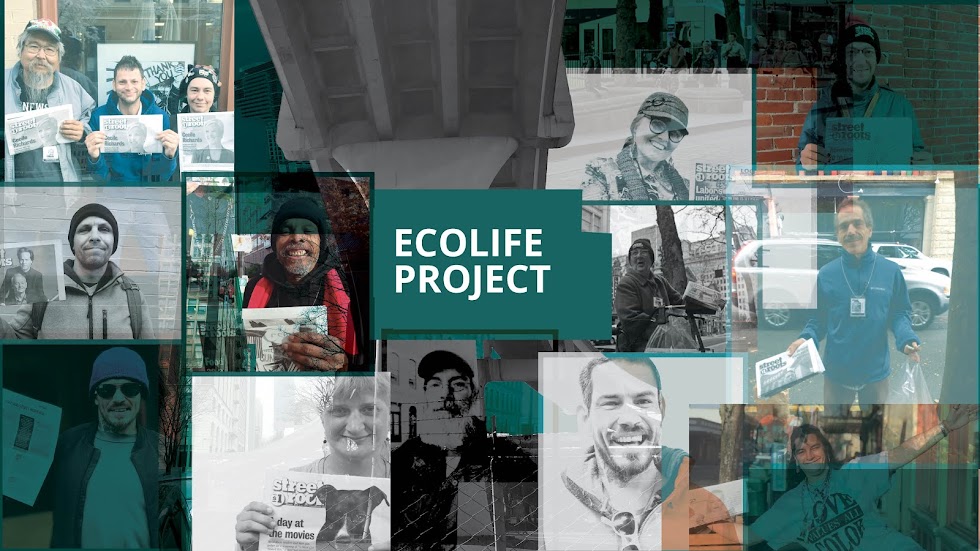When one makes a series of criminal errors in judgment, or commits a serious crime against others, they may receive an appropriate justified punishment. That punishment may result in a felony conviction, when and if they are prosecuted under State and federal laws, by a jury of their peers. According to the Crime Report, a crime reporting agency from Portland Oregon. "The majority of Portland Oregon's homeless populations find themselves unable to escape a life on the streets due to a criminal background that they cannot shake off, specifically felony charges."
(The Crime Report TRC Staff-https://propertyclubNYC-2-1-22) So the fact of the matter concerning what most houseless people are going through concerning the daily struggle of homelessness have a felony conviction. There are few options for housing across the United States with all States requiring a criminal background check before approval and acceptance of a leasing agreement for everybody including houseless individuals with a criminal background. There is one State that will work with people that have a felony on their criminal record, and that is the State of New York according to google and the property club NYC, "Yes, convicted felons can live in public housing as long as they meet specific requirements to qualify for section 8 public housing. The felony has to be at least 5 years old and it cannot be a disqualifying felony.
" (https://propertyclubNYC-PropertyClub Team-9-6-22) In this blog we will look at an in-depth investigation on how does a felony effect the lives of those experiencing houselessness, in Portland Oregon and a crossed the United States, and what is a felony? What are the consequences to equitable housing opportunities lost due to felony conviction and how does this affect the rate of houseless populations.?
let's break this down, there are three kinds of felony conviction class A, B and C, with class A being the most serious of offences. According to, Zuanich Law PLLC, "Class A and B plus including some class C felonies can never be expunged from your record."
(https://www.zuanichlaw.com) This ultimately means that people with felony records, are barred from, ever being able to rent an apartment for the rest of their lives, as misdemeanor offences, bankruptcy and bad credit due to delinquency of financial payments will all fall of your record in 7 years, then you are clear and free to rent from any place you like but a felony conviction never falls off your criminal history back ground check ever, unless it is a class C felony which can be expunged after 10 years of the conviction
When 10 years has passed since the time of your conviction, then you can apply and go through the courts and States process for expungement of the class C felony. If you have a class A or B felony on your criminal record, then no such expungement exists. It does not matter if you live in a Red or Blue leaning State as all states look down on a felony conviction due to the egregiousness and heinousness of these crimes against fellow citizens.
There is one alternative for those with a felony conviction and that is you can rent from a motel or hotel because there is no criminal background check at a hotel/motel. And the State of Oregon is aware of this and this is the reason why Motel housing vouchers are given by the State of Oregon to Houseless families as well as individuals, to stay in a motel that accepts the State funded voucher program. A felony conviction presents a barrier to housing and this barrier to equitable housing is universal throughout the whole country of the United Staes from the West to the East coast, and from the North to the South borders, I've researched all 50 states, on google and the result is, there is no State in the United Staes of America that does not require a criminal background check for leasers of apartments. The majority of all voters currently feel that this is an appropriate punishment for people with felony convictions, accept currently the State of New York. With this being known that most of the houselessness astrued throughout the streets, parks, freeway islands, and infrastructure, is due to a felony conviction, which creates a majority of the housing crises we are experiencing. With an ever-sprawling homeless populations increasing. We need to implement a change in policy perhaps, a new approach and perspective that will lead to a decrease in the homeless population and a betterment of societal health while improving the health of the environment and the mental well-being of those suffering from the ill effects of abandonment. 'Felons who bypass reentry programs and try to search for an apartment themselves often denied housing as the result of their criminal record. No law exists on the books that prevents this from happening. One possible solution could have positive impacts for those on the streets with a felony conviction a you build it you live in it, community for those who can't find housing due to a felony record in a tiny home community. If you would like to find out more about how you can assist, those who cannot get a home due to a felony conviction click here
."(www.felonyrecordhub.com/housing/oregon/) (RentWell.org https;//rentwell.org.)(https;//projects.org/rentwell) Written by Clifton Ducharme PSU/ Instructed by Robert Bremmer Professor Sr. Capstone.

.png)
